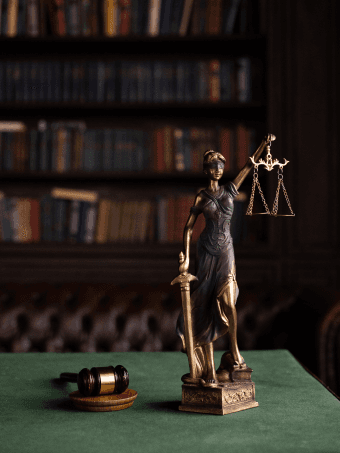Details of the case
The two-person waste collection business in Brighton called Lord of the Bins was contacted by Middle-earth Enterprises, which owns the worldwide rights to The Hobbit and the Lord of the Rings trilogy, with a cease and desist letter. The legal notice states that the name of the waste business is too similar to the name of the famous film franchise, which could lead to consumer confusion.
Nick Lockwood and Dan Walker, who own Lord of the Bins, applied for a trademark to try and protect their business, but during a two-month objection period, they received opposition three or four weeks ago, followed by a formal cease and desist from Middle Earth Enterprises on January 18. The company revealed the news on February 2 on their Twitter account, stating that they would need to spend thousands of pounds and effort rebranding to appease a multi-billion pound company. Besides changing the firm’s name and website, the order states that the company also has to change their slogan – “One ring to remove it all”.

Likelihood of confusion
Middle-earth Enterprises said that because of the name's similarity, there is a likelihood of confusion, meaning customers might believe that Lord of the Bins is officially affiliated with The Lord of the Rings. If two companies are using brand names/logos or any other brand assets that are identical or similar, the company that registered a trademark over it first can still bring a claim for infringement if it can prove the "likelihood of confusion". In short, this means that a company can stop the potential infringer from using the brand asset in question if a reasonable consumer would likely be confused by the continued use of it.
A number of factors play into the likelihood of confusion, including how distinctive the name/logo is, how similar it is to the opposing trademark (in the case of a logo, whether the colour, font, or style are too similar), and how similar the products or services are. The likelihood of confusion is given if there are both similarities between marks and similarities between goods/services.
Trademark disputes over the likelihood of confusion are extremely common, and many famous brands are keen on using the likelihood of confusion to deter potential competitors from trying to leverage their name and reputation. Recent cases of court actions brought by Microsoft, Oatly, and Jack Daniel's, however, show that strict enforcement of Intellectual Property rights can come at a certain cost.
Balancing trademark enforcement and brand reputation
Smaller companies that find themselves victims of trademark bullying from international giants may turn to the media as a source of support and potentially a tactical tool to use to gain public support for their case. On the other hand, larger companies should consider potential media response and its effect on their reputation in their strategy and approach when defending against infringement with a substantially smaller opponent. With the speed at which stories can go viral through social media, a brand can find itself on the back foot and facing significant public backlash when stories of "trademark bullying" appear in the headlines.
The trademark enforcement of companies like Middle-earth Enterprises to secure their intellectual property has the potential to end up causing more damage to their reputation than merely having a registered trademark similar to theirs. This is why brands should carefully consider how they handle individual dispute cases, evaluate the real risk of brand confusion or potential devaluation of the brand and try to negotiate an outcome that wouldn't reflect poorly on the brand's long-term reputation.


